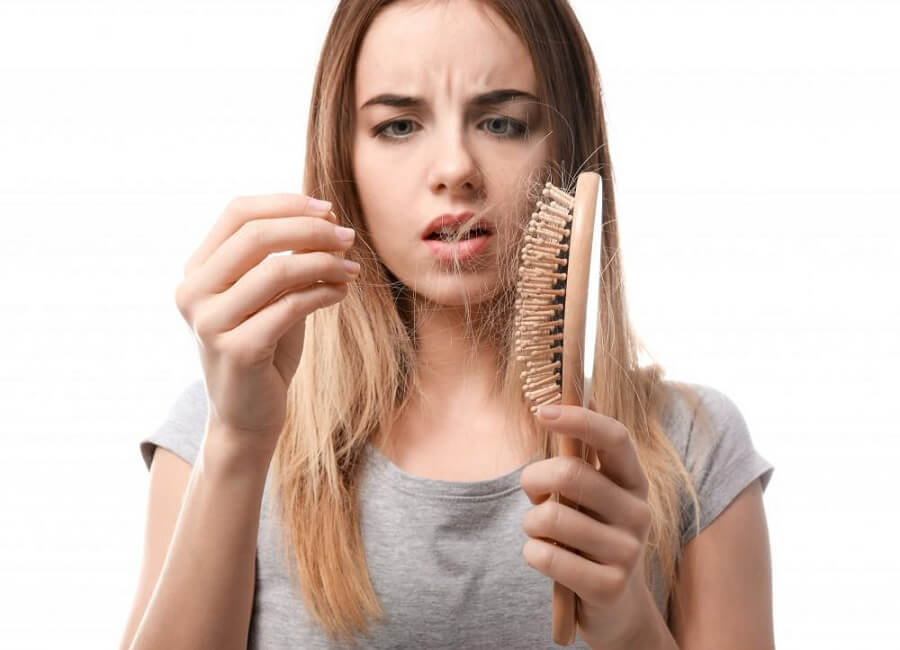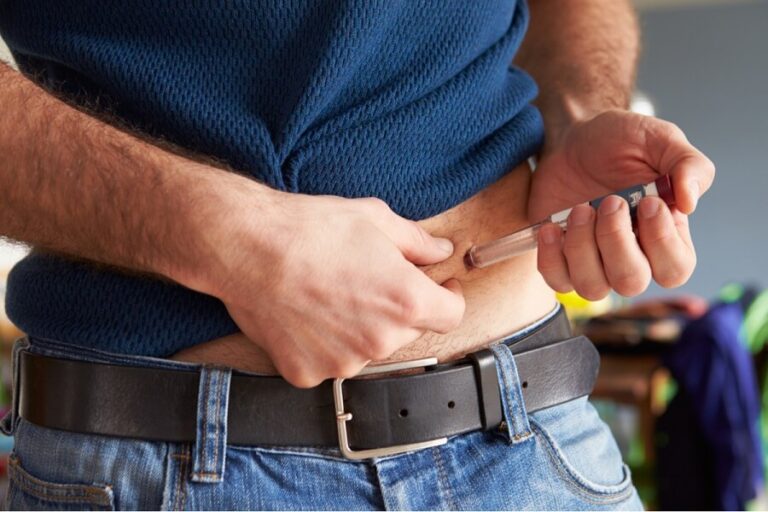People with diabetes experience various symptoms and health problems, one of which is hair loss.
Many factors can affect hair growth, including stress, sex hormones, high blood sugar, and diet.
The excellent news is that good blood sugar, and insulin control can help reverse the effects of diabetes on baldness.
This article describes the effects of diabetes on hair loss and what are the most effective treatments to reverse this situation.
RELATED: Diet for Type 2 Diabetics
Effects of diabetes on hair loss
Hair loss is a natural part of the hair life cycle. What determines whether a person has baldness is the body’s ability to grow back.
Diabetes can affect this cycle and cause effects on hair growth.
Studies have shown that uncontrolled blood sugar levels can damage blood vessels. (1,2) Ultimately, this effect causes less oxygen and nutrients to reach the hair.
If people with diabetes notice hair loss on the arms and legs, they should immediately inform their doctor. Since it could be a sign of poor blood flow.
People with diabetes expose themselves to stressful situations (or stress due to the disease itself); it can enhance hair loss. This is explained due to the hormonal effects caused by the stress hormone cortisol. (5)
On the other hand, it has been confirmed that there is a relationship between the type of diabetes and baldness. For example, type 1 diabetics are more likely to develop alopecia areata. In these cases, hair loss occurs in a concentrated and isolated form in the form of patches. (4)
People with diabetes – Baldness Treatments
There are several treatments for people with diabetes to reverse hair loss; the best known are drugs such as finasteride. However, to reduce the effects on baldness, changes in habits and incorporation of certain types of food are also served.
The treatments for baldness in diabetics are:
- Biotin
Biotin is a B group vitamin; people with diabetes tend to have lower levels of biotin in their bodies. (6) Research suggests that it can be used to treat baldness in these cases. (3).
Biotin can be taken in the form of supplements or increased consumption of foods rich in this nutrient, such as eggs, salmon, nuts, and avocado.
- Medications – finasteride and minoxidil
Minoxidil is a topical hair growth promoter. Its effects are attributed to the ability to open specific ion channels and increase vasodilation of hair follicles. (10)
Finasteride is an anti-androgen drug traditionally used to treat hair loss in men. It is not an approved treatment for women.
Both medications are effective treatments for baldness. However, they can have side effects. They can be taken in tablet form, always under the supervision of a doctor.
- Mindfulness – meditation and yoga
Meditation is an effective method to reduce levels of the stress hormone cortisol. Studies have shown a reduction of up to 20% in cortisol values with just 20 minutes of meditation per day.
(7) If you have diabetes, feel stressed, and experience hair loss symptoms, you should consider meditating as a treatment.
Yoga is one of the best exercises for diabetics. Not only does it allow relaxation of the mind, but like other types of physical activities, it can help control blood sugar levels. About three yoga sessions a week can help reduce the effects of diabetes on baldness.
- Natural treatments – Aromatherapy and herbal extracts
Preliminary studies (8,9) have shown positive effects of aromatherapy and herbal extracts in alopecia. In particular, it has been confirmed that castor oil and walnut oil. They can help with nutrition in the areas surrounding the hair follicles.
Aromatherapy has positive effects in preventing baldness both indirectly and directly. This is because it can reduce stress levels and increase blood vessel circulation. Natural treatments for baldness have the advantage that they have no side effects.
RELATED:
Can diabetes hair loss be reversed?
In some cases, hair loss is reversible. The use of treatments allows not only to delay or stop the loss of hair in diabetics but also to stimulate its growth.
However, the effects of medications or topicals should not be overestimated. If people with diabetes do not control their blood sugar levels and do not follow a proper diet plan, they will likely develop baldness.
Too much sugar in the blood can damage body tissues, including blood vessels. Damaged blood vessels cannot carry enough oxygen to nourish the hair follicles. Ultimately, this can lead to hair loss.
If the hair loss is related to the control of diabetes, you should first adjust your lifestyle, medications, and diet. In the case of type 2 diabetics, the most important thing is to distribute the number of carbohydrate foods throughout the day.
ABSTRACT
People with diabetes are more likely to have baldness. This is because high blood sugar levels can cause damage to the blood vessels responsible for nourishing hair and a tendency to have lower levels of biotin.
The most effective way for a person with diabetes to prevent and reverse baldness is to control blood sugar levels and stress. There are medicinal and natural treatments that can help stimulate hair growth. However, they should not be seen as the solution to the problem.







